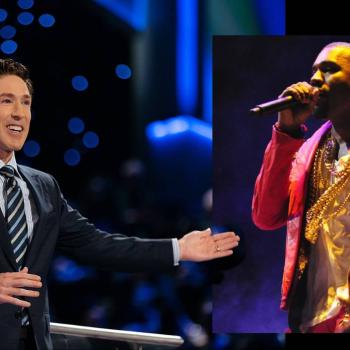Yet many social media critics refuse to lend it any semblance of significant value. They say things like: "The more social media we have, the more we think we're connecting, yet we are really disconnecting from each other." Often, as Virginia Heffernan writes in her recent examination of Internet aesthetics, Magic and Loss, these critiques lacquer "the sheen of social science on garden-variety sermonizing." They think the key to living as an ethical person is to delete your account.
When I think of my own life, it is certainly true that social media has allowed me to propagate a limited, simple, even dishonest image of myself. Yet this seems hardly distinct from the sort of image that I, the son of a pastor, propagated every Sunday as I small-talked like a mini celebrity at a weekly cocktail party. I was a shy, insecure kid, but I could make it seem like I was the little chubby prince of that Presbyterian castle. Even online trolling and angry commenting seems like the newest incarnation of the sort of self-making-via-defiance that manifests itself in the worst forms of rebellious stand-up comedy. The digital architecture of social media, maybe even the distance inherent in electronic mediation, may readily enable (or even implicitly encourage) disingenuousness and defiant spurning. But internal, ethical issues lie at the root of these external, media-made problems.
Instead of totally buying into any one of these narratives, it seems most helpful to get back to basics. As the media theorist Friedrich Kittler has observed, Aristotle was the first dude "to turn a common Greek preposition – metaxú, between – into a philosophical noun or concept: tò metaxú, the medium." Aristotle used the term "medium" in a way that might surprise us, though: to talk about air and water: two "betweens," two elements that are not only unavoidable, but utterly essential for life.
I'm not suggesting say that we'll be airless or dehydrated without Instagram or Coffee Meets Bagel. But I am suggesting that we ought to think about mediums not as things that inherently block interpersonal relations; nor as things that easily, simply "connect" disparate people without any hard work; but as things (elements, infrastructures, channels––choose the noun that sounds best) in and through which we can work to knit ourselves together into what the theologian Paul Tillich calls "the multidimensional unity of life."
As a Christian, I believe that all of humanity is called to join in one utterly diverse, yet utterly unified, body. A body can only knit itself together through connective tissue readily built and maintained and then rebuilt as it wears and tears; through air brought in and out; when it's wired by arteries and veins pumping water, salts, protein. A body can only maintain itself if it alerts itself to its own internal diseases. A body can only maintain itself, in other words, if it uses the mediums at its disposal with careful intent. Perhaps, then, it's no coincidence that St. Paul embraced letter writing when philosophers like Socrates spurned the form. Perhaps it's no coincidence that Martin Luther was the first mass media celebrity. Those guys had cells to duplicate, multinational embryos to develop.
But we misuse new technologies. In our attempts to connect, we often decimate as much as we create. (Just ask any post-colonial nation.) We get addicted to porn, Candycrush, Farmville. We binge watch Adam Sandler movies. We use texting to avoid conflicts. Because of this––and a general fear of the unfamiliar––new mediums intimidate us.
Therefore, as beta-mediums continually roll out of Silicon Valley, we need more and more thoughtful media analysis––not "garden-variety sermonizing," not knee-jerk reactions, not hyperbole, but the fruit of ethically-minded engagement and truths drawn from deep, vulnerable wells of personal experience. The TED Radio Hour has begun to do this. Virginia Heffernan has begun to do this. And I hope that my own writing has begun to do this, too.
We cannot escape mediation itself, since we experience the essence of life itself through countless forms of mediation. We can't just delete our accounts. We can't just spurn the "dishonest media." Instead, we need to think about media with greater honesty––and with greater imagination. And then we must, as I write in Surface Tensions, "reach a trembling hand into the void and hold tight to the things between us, which are, after all, linked to us all along."




